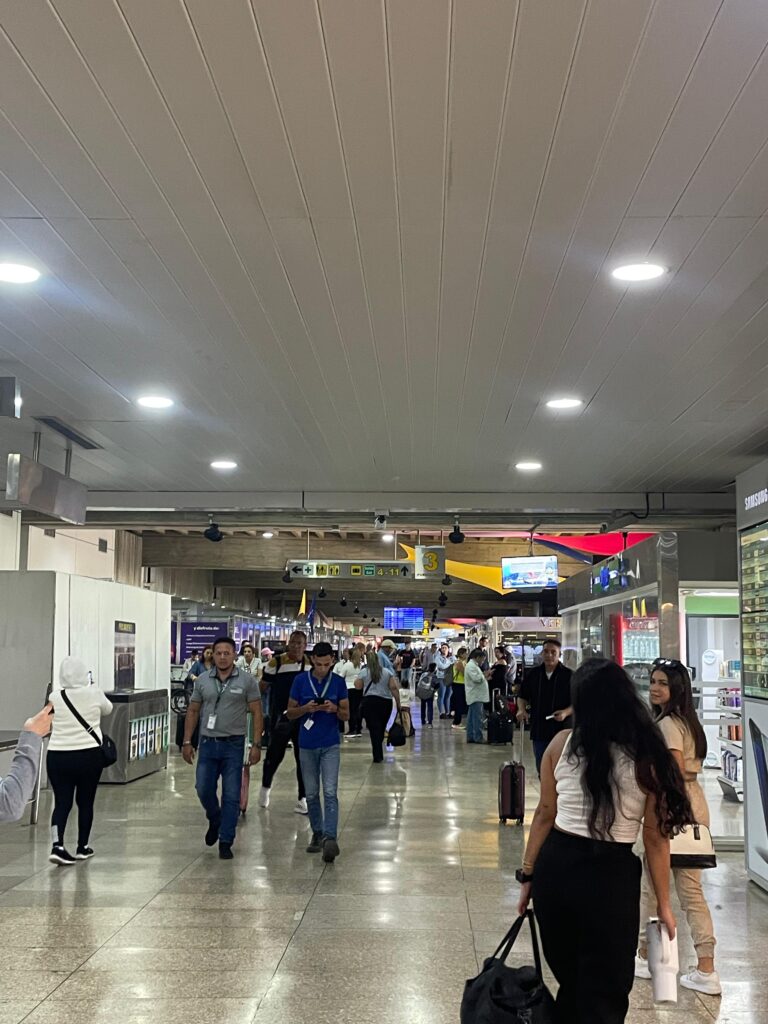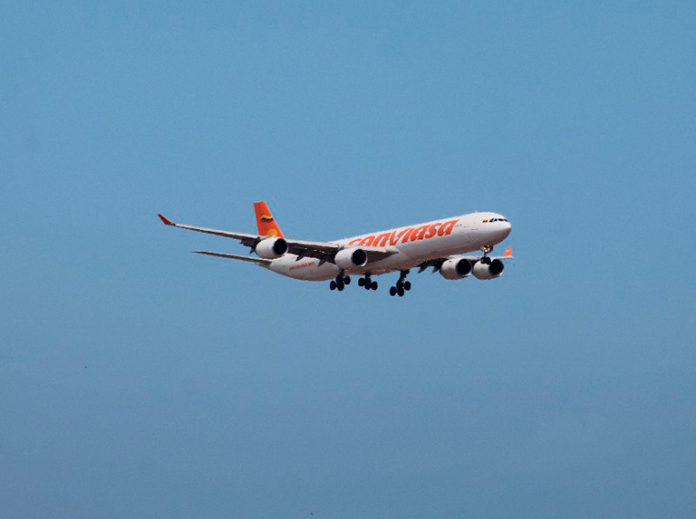At this point, you’ve probably seen them: Venezuelans arriving in the country ready to vote are like the Avengers assembling. But they’re not alone in Maiquetia. Dozens, hundreds, optimistically thousands, are traveling to their hometowns across the country to cast their ballots.
I was one of them, having built a life in Caracas but originally from Guanare, Portugal. I hopped on a flight from Maiquetia to Barinas, a route I’d taken many times before, and saw the airport packed with people. It was the busiest I’d ever seen it. I had a little chuckle to myself, thinking, “Oh, so this is how it’s supposed to be!”
Everyone I spoke to was on her way to vote, including Rismar Iratia, who works in Caracas and asked to take Monday off to go home. “Why didn’t I do this after 24 years of voting against them? We all need to vote,” she told me. She was even wearing a T-shirt that read, “I vote to defend democracy.”
Others were more shy. Sitting next to me were two guys in their 30s. We laughed about the lack of windows in our seats and they said they were looking forward to going home. They had come to Puerto Ordaz for work and it was their second flight that day. When I asked if they were there to vote, they quickly changed the subject. One of them asked me later if I was going to vote. When I said I was, he said, “Oh, I’m not voting,” and continued fiddling with his phone.
There was a woman who got off the plane with me. We started talking about how hot it was in Barinas, but soon the conversation turned to the lack of flights (only two airlines currently serve the route) and how “it’s better to fly on Friday because we don’t know what’s going to happen tomorrow.” She said she wanted to come here anyway so she wouldn’t have any problems voting on Sunday.
Every step of the way, I was determined to listen to people. My favorite moment was when the flight attendant called for us to board the plane in Maiquetia. A father and his child, a girl no older than seven, said they were traveling “for freedom, for democracy.” While waiting for our luggage in Barinas, I overheard a conversation between two girls in their twenties. One asked the other if they were traveling to vote. She replied that no, they were just going to see their families, and then said, “But since I’m here…”

I also heard a man shout “Thank you Venezuela!As I got off the plane I shouted “Thank you!” Unfortunately, my emotions got the better of me.
Not everyone flew. As I was saying goodbye to one of the cleaners in my building in Caracas this week, she told me she too wasn’t planning on coming until at least Wednesday. She was heading to Puerto Cabello to vote. “Then we can go to the beach and celebrate,” she said.
We drove along the Autopista José Antonio Páez from Barinas to Guanare. It was strange to see almost no one there. I expected there would be traffic jams and that I would face at least two checkpoints, but that didn’t happen.
And yet, as soon as I arrived in Guanare, my mother began reading messages from people looking for rides to get here. Of course, this activity was interrupted by a 30-minute power outage, which surprised both my parents. “We’ve never seen anything like this since the campaign began.”
But nothing can erase the feeling I felt when I saw parents at the airport holding yellow, blue and red balloons, waiting for their sons whom they hadn’t seen for seven years. There were a lot of tears at the airport today. I even overheard someone say that Maria Corina promised to bring our children back. “She’s already done it, even if it’s just for votes.”


